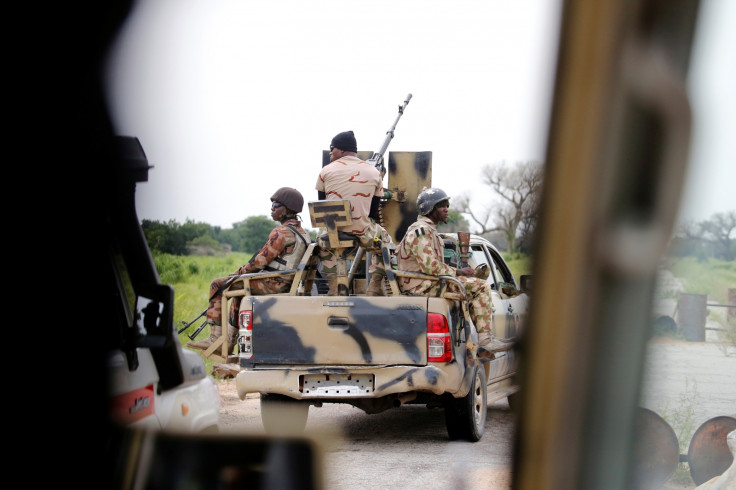Two suicide bombers die at Maiduguri checkpoint as fight against Boko Haram continues
Nigerian army and police are foiling most of the attacks planned by Boko Haram militant group.
Two suicide bombers blew themselves up at a military checkpoint in Maiduguri, capital of Nigeria's restive Borno state on Friday (18 November) morning. Two other explosions occurred hours later.
Police confronted two women and a man running towards the checkpoint opposite the Federal High Court, deputy police superintendent Victor Isuku was quoted by AP as saying.
One woman detonated the explosive she was carrying, killing herself and the male accomplice. The other woman was arrested and underwent interrogated.
Boko Haram terrorists are believed to be behind the twin suicide bombings, the fifth attack to occur in Maiduguri in the past three weeks.
Fight against Boko Haram
The Nigerian army and police have been foiling most of the attacks planned by Boko Haram, renowned for kidnapping civilians and forcing them to carry out suicide bombing missions. Earlier in November, the army killed three female suicide bombers as they tried to enter Maiduguri.
However, Shehu Saulawa,director for Nigeria's secret intelligence agency, warned the insurgents are now fleeing to the central-eastern state of Taraba.
Boko Haram has waged a seven-year-long insurgency in north-eastern Nigeria, killing thousands of people. The conflict, which erupted in 2009, has spilled over into neighbouring countries, sparking a grave humanitarian crisis in the Lake Chad basin region, where 2.6 million people are currently displaced.
Who are Nigeria's Boko Haram?
Boko Haram, which has renamed itself Iswap, fights against Western influence in Nigeria and aims to impose its version of Sharia law throughout occupied territories.
The group launches attacks in Nigeria and neighbouring countries in a bid to take control of more territory. Three Nigerian states – Adamawa, Borno and Yobe − have been under a state of emergency since May 2013.
Boko Haram has killed more than 20,000 people since 2009 and was deemed the world's deadliest terror group, surpassing Islamic State in November 2015. Nigeria has also become the world's third-most terrorised country as a result of the group's violent insurgency.
In addition to its own military operation Lafiya Dole, Nigeria is now leading a regional offensive – consisting of 8,700 troops from Nigeria, Niger, Chad, Cameroon and Benin – against Boko Haram.
The offensive has scored some successes, such as the recapture of key territories and the release of thousands of civilians held captive by the group.
Although Nigeria's President Muhammadu Buhari declared a technical victory over the fight against the insurgents in December 2105, Boko Haram still carries out attacks, with security experts warning that underlying issues such as disenfranchisement, poverty and strong links with the Islamic State (Isis) would continue to pose major threats to stability in the region.
Earlier this year, the group split into two factions after Abubakar Shekau was replaced with the IS-appointed Abu Musab Al-Barnawi, former Boko Haram spokesperson.
Shekau, however, denied he had been replaced and claimed al-Barnawi was staging a coup against him.
Nigeria up close: Check out our Flipboard magazine

© Copyright IBTimes 2025. All rights reserved.






















